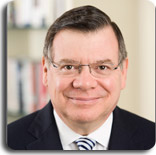What do you do when your fancy degree gets you a job answering the phone and filing papers for someone else?
Amanda Pouchot and Kathryn Minshew from prettyyoungprofessional.com have some helpful advice.
What do you do when your fancy degree gets you a job answering the phone and filing papers for someone else?
Amanda Pouchot and Kathryn Minshew from prettyyoungprofessional.com have some helpful advice.

Amanda Hocking (photo courtesy Business Insider)
Technology changes everything, again.
Amanda Hocking is living the dream: she’s in her mid-twenties, writing what she wants to write, and making a serious profit without any of the usual middlemen. No publishers, no editors, no marketers, no book-signing tours.
The Kindle store allows her to connect directly with readers, who sometimes pay only a dollar to download her work. But multiply one dollar by 100,000 downloads, and then imagine taking home 70% of that. (Amazon keeps the rest.)
This is good news for young writers looking to make a name (and a profit) for themselves, but what about all those people who make their living as publishers, editors, and marketers?
We found Peter Thomas hanging around at the Global Student Entrepreneur Awards while we were at the New York Stock Exchange this October.
Peter is a really wise and motivational guy. Here he talks about how following your gut (or your passion) is key to living a happy, successful, and prosperous life.
(You can watch the whole GSEA recap video here. To see all of SPEND.GROW.GIVE’s GSEA interviews, click here.)
Our new friends Amanda Pouchot and Kathryn Minshew talk about why they started prettyyoungprofessional.com – a website dedicated to helping young women (and anyone, really) survive the challenges of the post-college world.
TILE showed up for part of the Global Student Entrepreneur Awards at the New York Stock Exchange this October, and we met some young folks who made us feel bad about sleeping through college.
Zach started a tech support business when he was 14 years old. Since then, he’s followed his heard and stuck by his values, and now that small business has absorbed several others in the area and is on its way to total. market. domination. Watch this clip to see where he’s coming from:
Watch the oh-ficial GSEA 2010 recap video here. To see all our GSEA interviews, click here.
As Chief Operating Officer of Facebook, Sheryl Sandberg knows a few things about succeeding in a male-dominated industry. (Anyone seen the genius-male to lame-female ratio in The Social Network? Hmm?)
But in this awesome TED Talk, Sheryl gives us reason to believe that women can choose to sit at the desks in the corner offices if they just remember three things.
Compared to last year, it’s easier for MBAs to get a job, but nowhere near as easy as it was before the recession.
“Back in 2007 and 2008, students had flexibility to decide where they wanted to live and work. With outlooks tightening, students will take opportunities wherever they’re available.” – Nicole Hall, President of the MBA Career Services Council
 Bernard T. Ferrari is the Chairman & Founder of the Ferrari Consultancy, but before he became a professional strategy consultant, he’d been around the block more than once. Before establishing his consulting firm, he served for almost 20 years as a Director at McKinsey & Company. And before THAT, he was a surgeon and chief operating officer at a clinic in New Orleans. He’s racked up a B.A., an M.D., a J.D., and an M.B.A. during the course of his education, which we think makes him “Bernard T. Ferrari, M.D., J.D., M.B.A.” Bernie is a trustee of the Juilliard School and the University of Rochester, he’s a philanthropist, and he’s also a Life Member of the Council on Foreign Relations. Not a bad man to ask for advice.
Bernard T. Ferrari is the Chairman & Founder of the Ferrari Consultancy, but before he became a professional strategy consultant, he’d been around the block more than once. Before establishing his consulting firm, he served for almost 20 years as a Director at McKinsey & Company. And before THAT, he was a surgeon and chief operating officer at a clinic in New Orleans. He’s racked up a B.A., an M.D., a J.D., and an M.B.A. during the course of his education, which we think makes him “Bernard T. Ferrari, M.D., J.D., M.B.A.” Bernie is a trustee of the Juilliard School and the University of Rochester, he’s a philanthropist, and he’s also a Life Member of the Council on Foreign Relations. Not a bad man to ask for advice.
TILE: What exactly is a strategy consultant?
Bernie: A strategy consultant works closely with a company’s senior management to help address how, when, and where to compete. Strategy consultants are essentially professional problem-solvers brought into an organization to provide independent thinking and an outside perspective on business challenges.
TILE: How old were you when you got involved in philanthropy?
Bernie: I was in my 30s. At that time I was in medicine and most of my philanthropic work was associated with that profession. I donated mostly to research being conducted on major medical problems and diseases. Then later I started to broaden my philanthropic interests.
TILE: Do you have a personal mission or giving plan?
Bernie: My personal mission when it comes to philanthropy is to provide outstanding education to the most talented students in our country. I am interested in helping to build an extraordinary educational system that takes very talented individuals and makes them even more impactful members of our society.
TILE: What’s the best advice you would give your teenage self?
Bernie: Avoid cynicism. To lead a happy and productive life, you must stay optimistic and channel your personal passions to address society’s challenges through your career or your philanthropy or both.
TILE: What’s your advice to someone who knows nothing about business but who wants to learn the ropes?
Bernie: I have three pieces of advice. First, read as much about business as you possibly can, particularly in the news and the business press. Second, hang around business people and people who talk about business, as those individuals can sometimes be your best learning resources. And finally, go to business school, either as an undergraduate or as a post-grad, so you can learn the fundamentals and get plugged into the business community.
>> TILE brings you exclusive opinions, explanations, and interviews from experts in every industry. To read more, click on Ask the Experts in the TILE Library.
Have a burning question or an expert you’d like to see interviewed? Just Ask TILE!
The Internet has turned many news outlets into frenzies of über-competitive racing to break even the smallest tidbits of news, and many young journalists can’t handle the pressure.
“At a paper, your only real stress point is in the evening when you’re actually sitting there on deadline, trying to file. Now at any point in the day starting at 5 in the morning, there can be that same level of intensity and pressure to get something out.” – Jim VandeHei, Politico’s Executive Editor